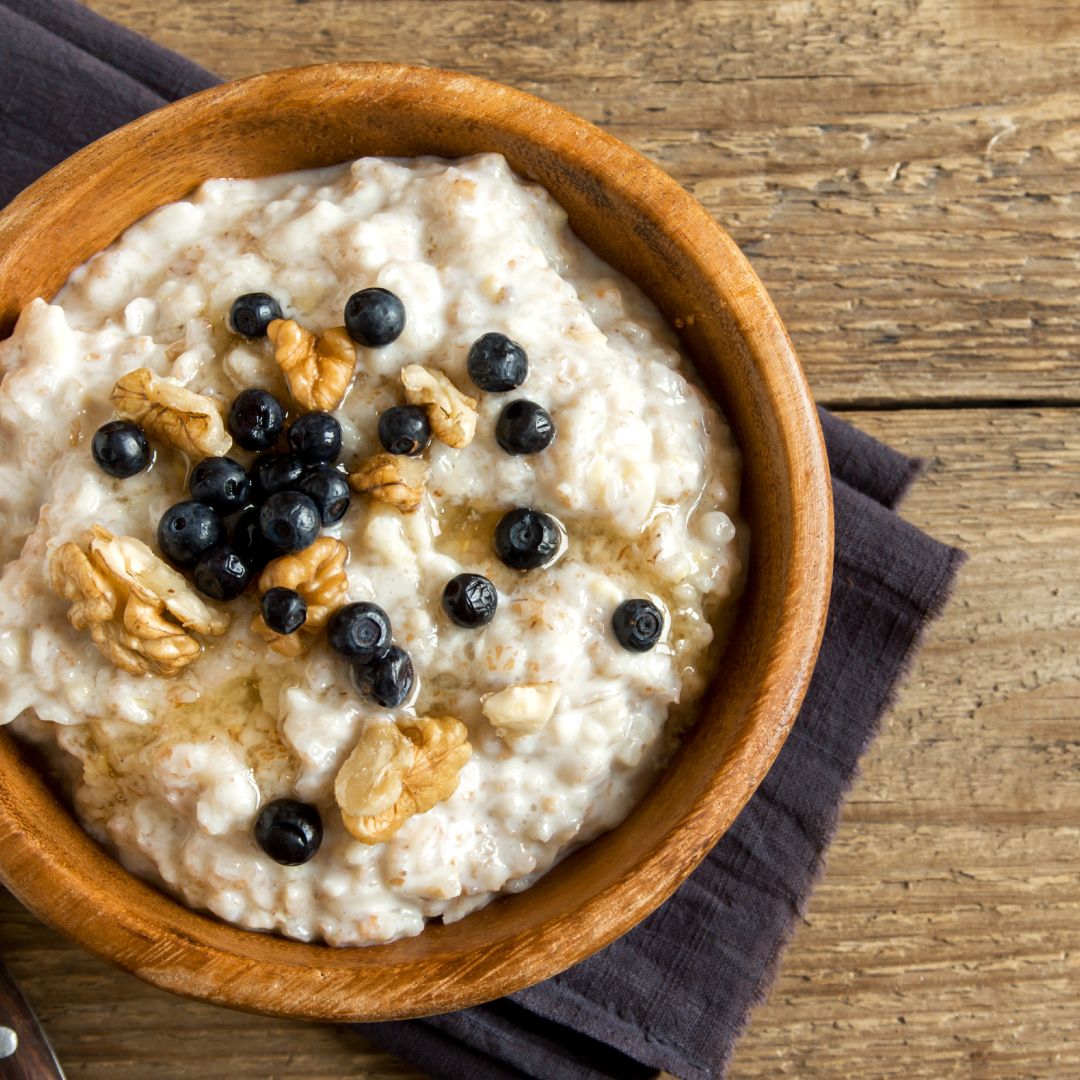
Inflammation, PCOS and Heart Health
If you have PCOS and you feel tired, puffy, achy or stuck in a cycle of cravings and crashes, you have probably come across the idea that inflammation is part of the picture. This can sound vague online, but in research terms, PCOS is often associated with chronic low-grade inflammation, particularly when insulin resistance, central weight gain, poor sleep and ongoing stress are present.
This matters for long-term health because atherosclerosis (the process that underpins most heart disease) is not just about cholesterol. It is also an inflammatory process that affects the blood vessel wall over time.
In this blog, I will explain why PCOS is often described as an inflammatory condition, how inflammation influences cardiovascular risk, and what actually helps in real life.
Why PCOS is an inflammatory condition
Inflammation is a normal immune response. The issue is when the body stays in a low-grade, switched-on inflammatory state for months or years.
In PCOS, several factors can contribute to this:
In studies, inflammatory markers such as CRP and interleukin-6 are often higher in women with PCOS compared with controls, supporting the concept of chronic low-grade inflammation as part of PCOS pathophysiology.
How inflammation drives cardiovascular risk
Inflammation affects the cardiovascular system in a few key ways.
First, it impacts the endothelium, the inner lining of blood vessels. Healthy endothelium helps blood vessels relax and regulates clotting and immune activity. Chronic inflammation makes this lining less resilient, contributing to endothelial dysfunction, which is an early step in cardiovascular disease.
Second, inflammation is involved in plaque development. Cholesterol particles enter the vessel wall and trigger an immune response. Over time, the combination of lipids plus inflammatory signalling drives plaque formation and instability.
This is one reason it can be helpful to think about heart health using more than one marker.
A major 2024 study following nearly 28,000 initially healthy women over 30 years found that a combined measure of LDL cholesterol, Lp(a), and high-sensitivity CRP (hs-CRP) predicted long-term cardiovascular events.
Nutrition and lifestyle factors that matter most
When inflammation is part of your PCOS picture, the goal is not to eliminate inflammation entirely. Inflammation is a normal and necessary part of immune function. The aim is to reduce the chronic drivers that keep the body in a persistently activated state, while supporting metabolic flexibility, vascular health and recovery.
This is where many women with PCOS feel stuck. They are eating well, exercising, and still feel inflamed. In those cases, the issue is rarely a single food or nutrient. It is usually a combination of metabolic, gut, immune and lifestyle factors.
Overall dietary pattern still matters most
High-quality evidence consistently shows that overall dietary pattern is more important than individual foods or supplements for cardiovascular and inflammatory risk.
Mediterranean-style dietary patterns are associated with lower inflammation, improved lipid profiles and reduced cardiovascular events. In PCOS, this approach is particularly relevant because it also supports insulin sensitivity, gut health and fibre intake, all of which influence inflammatory signalling.
In practice, this means building meals around vegetables, beans and lentils, fruit, nuts and seeds, and fish, alongside stable whole-food fats. The focus is not restriction, but food quality and consistency.
Ultra-processed diets tend to be lower in fibre and phytonutrients, and higher in refined carbohydrates, additives and industrial fats. Population-level evidence links these patterns with higher inflammatory markers and poorer cardiometabolic outcomes. For women with PCOS, reducing reliance on ultra-processed foods often improves both inflammation and blood sugar regulation, even without intentional calorie reduction.
Gut health and inflammation in PCOS
The gut plays a central role in immune regulation, and this is increasingly relevant in PCOS research.
Emerging evidence suggests that women with PCOS often show differences in gut microbiota composition compared with controls. Reduced microbial diversity, altered short-chain fatty acid production and increased intestinal permeability have all been described. These changes can promote systemic inflammation by allowing immune-activating compounds to enter circulation more readily.
Fibre intake is particularly important here. Fermentable fibres feed beneficial gut bacteria and support the production of short-chain fatty acids such as butyrate, which help regulate immune activity and maintain gut barrier integrity.
If gut symptoms such as bloating, pain or irregular bowel habits are present, inflammation may be driven as much by digestive strain as by diet quality alone. In these cases, supporting gut tolerance, meal timing and digestion can be as important as what foods are chosen.
Food sensitivities and immune activation
Food sensitivities are common in PCOS discussions and are often misunderstood.
True immune-mediated food reactions are relatively uncommon, but many women with PCOS experience food-related symptom flares due to gut permeability, altered digestion or heightened immune responsiveness. This does not mean long-term avoidance is always necessary or helpful.
Overly restrictive diets can increase stress and reduce dietary diversity, which may worsen gut health and inflammation over time. A more effective approach is usually to identify triggers carefully, address gut integrity and digestion, and then reintroduce foods where possible.
The aim is to calm immune activation, not to permanently shrink the diet.
Omega-3 fats and inflammatory balance
Omega-3 fats remain relevant in PCOS because of their role in inflammatory balance and triglyceride metabolism. A 2021 meta-analysis reported improvements in several cardiometabolic markers in women with PCOS following omega-3 supplementation, and subsequent reviews continue to support omega-3 as beneficial for inflammation and metabolic risk. Food sources such as oily fish also fit naturally into dietary patterns associated with lower cardiovascular risk.
Omega-3s are not a stand-alone solution, but they can support resolution of inflammation when combined with improvements in diet quality and lifestyle factors.
Movement as an anti-inflammatory signal
Physical activity is one of the most reliable ways to reduce inflammatory signalling over time.
Exercise improves insulin sensitivity, supports endothelial function and promotes anti-inflammatory cytokine release. A 2024 review of physical activity in PCOS highlights improvements in cardiometabolic markers, even without significant weight loss.
This does not require intense training. Regular walking, resistance training and movement that supports muscle mass and metabolic health can all contribute. Consistency matters more than intensity.
Sleep, stress and recovery are not optional
Sleep disturbance and chronic stress are common in PCOS and are strongly linked to inflammation and cardiovascular risk factors.
Poor sleep increases insulin resistance, raises inflammatory markers, and disrupts appetite regulation. Chronic stress activates inflammatory pathways and can undermine the benefits of otherwise supportive nutrition.
For women who feel they have “tried everything” and still feel inflamed, this is often the missing piece. Not more rules or restriction, but better recovery, nervous system support and sleep consistency.
Inflammation in PCOS is rarely about doing more. It is usually about doing less, more consistently, and giving the body the conditions it needs to recover.
If you’d like to dig deeper into what might be triggering your inflammation, why not get in touch? You can book a free call here.
Short disclaimer
This blog is for educational purposes only and is not medical advice. As a BANT-registered Nutritional Therapist, I do not diagnose or treat medical conditions and I do not advise on prescription medications. If you have concerns about cardiovascular risk, inflammation or blood test results, please speak with your GP or relevant medical specialist.

Omega-3-Rich Mackerel and Beetroot Salad
When it comes to PCOS and heart health, nutrition does not need to be complicated to be effective. Simple meals built around the right balance of fats, fibre and plant compounds can support cardiovascular health while also addressing key drivers of PCOS such as insulin resistance and low-grade inflammation.
This omega-3-rich mackerel and beetroot salad is a good example of how everyday ingredients can come together to support heart health and inflammation balance in PCOS, without relying on ultra-processed foods or lengthy preparation.
Why omega-3 fats matter in PCOS
Omega-3 fatty acids, particularly EPA and DHA found in oily fish, have been widely studied in relation to cardiovascular and metabolic health. In PCOS, this is especially relevant because omega-3 intake has been associated with improvements in triglyceride levels, inflammatory markers and overall cardiometabolic risk in several recent reviews.
Omega-3 fats help regulate inflammatory signalling pathways and are involved in the production of compounds that support resolution of inflammation. This matters in PCOS, where chronic low-grade inflammation is common and contributes to insulin resistance and cardiovascular risk over time.
Mackerel is one of the richest and most affordable sources of omega-3 fats available in the UK. Including oily fish regularly, in line with UK dietary guidance, fits well within dietary patterns that support both heart health and metabolic balance in PCOS, such as a Mediterranean-style approach.
Beetroot complements this by providing fibre, polyphenols and dietary nitrates. Dietary nitrates are converted in the body to nitric oxide, which supports blood vessel function and healthy blood flow. Beetroot fibre also contributes to gut health, which is increasingly recognised as part of both inflammation regulation and hormone balance in PCOS.
Together, these ingredients support multiple aspects of cardiometabolic health in a food-first way that is practical and sustainable.
Mackerel and Beetroot Salad
This recipe works well as a light lunch or as part of a larger meal, particularly when you want something satisfying that supports steady energy.
Serves 2
Ingredients
2 mackerel fillets, smoked or freshly cooked and flaked
2 medium cooked beetroot, sliced or cubed
½ tin chickpeas, drained
A handful of rocket or mixed salad leaves
Half a small red onion, finely sliced
A tablespoon of capers or chopped gherkins (optional)
Extra virgin olive oil
Lemon juice or red wine vinegar
Fresh black pepper
Method
Arrange the salad leaves on a serving plate or in a bowl.
Add the chickpeas, beetroot and red onion, then gently flake the mackerel over the top.
Sprinkle with capers or gherkins if using.
Drizzle with extra virgin olive oil and a squeeze of lemon juice or vinegar.
Finish with black pepper and serve.
Simple variations
This salad is easy to adapt depending on preferences, appetite and tolerance.
If you prefer a warmer dish, the beetroot can be gently warmed before assembling the salad. For extra fibre and texture, cooked lentils or butter beans work well and can further support blood sugar stability in PCOS. If smoked mackerel feels too strong, freshly grilled or poached mackerel is a milder alternative.
If you do not eat mackerel, sardines or trout provide a similar omega-3 profile and can be used in the same way.
Making it work for PCOS
Meals like this work best as part of an overall pattern that supports insulin sensitivity, gut health and inflammation balance. Pairing omega-3-rich fish with fibre-rich plant foods and stable whole-food fats helps support triglycerides, cholesterol balance and vascular health, all of which are relevant in PCOS.
You can find more PCOS-friendly, heart-supportive recipes in our free private Facebook group – PCOS Unlocked – you can join it here.

Top Tips: Heart Healthy Swaps for PCOS
If you have PCOS and have been told your cholesterol is “a bit high”, or you are worried about long-term heart health, you are not overreacting. PCOS is not just about periods or fertility. For many women, it overlaps with insulin resistance, inflammation and changes in lipid metabolism, all of which can influence cardiovascular risk over time.
The aim of this blog is not perfection. It is about small, realistic food swaps that add up. These changes are especially helpful in PCOS because they support both cardiometabolic health and the underlying drivers of symptoms.
Why small swaps matter in PCOS
In PCOS, heart health is often shaped by the bigger pattern, not one “bad” food. When insulin levels are running high, the body may be more likely to show a classic pattern on blood tests: higher triglycerides, lower HDL cholesterol, and changes in LDL-related risk. This is one reason the 2023 international PCOS guidelines highlight having regular assessment of cardiometabolic risk factors, such as lipids and blood pressure.
Practical heart-healthy changes for daily meals:
When we talk about fats and heart health, the conversation often becomes overly simplistic. Saturated fat is frequently grouped together as something to avoid, but the evidence does not support treating all saturated fats as equal.
Whole-food fats such as butter, ghee and coconut oil have been part of traditional diets for generations and are chemically stable, particularly at higher cooking temperatures. In contrast, the strongest evidence of harm relates to industrial trans fats and highly processed sources of saturated fat, such as those found in commercially baked goods, pastries, deep-fried foods and processed meats.
In PCOS, this distinction matters. Many women are already dealing with insulin resistance and inflammation, and diets high in ultra-processed foods are consistently associated with poorer cardiometabolic outcomes.
Rather than eliminating traditional fats, a more practical and evidence-informed approach is to:
Research suggests that replacing ultra-processed fats with whole-food fat sources, alongside improving overall diet quality, is more relevant for cardiovascular risk than focusing on saturated fat intake in isolation.
For women with PCOS, this approach also supports satiety, blood sugar stability and hormonal balance, which indirectly influences cholesterol markers, triglycerides and inflammation over time.
Many women with PCOS are trying to “eat healthily” but still end up with meals that are low in protein and fibre, which can worsen cravings later.
A simple template is: protein + vegetables + fibre. For example, a shop-bought sandwich and crisps can become a grain bowl, soup plus chicken, or leftovers with added salad, seeds and olive oil.
This matters because triglycerides and HDL cholesterol are often influenced by overall meal structure and blood sugar stability. It is also relevant for ApoB, as higher triglycerides can be a clue that particle-based risk markers may be worth checking.
Fibre supports gut health, blood sugar regulation and lipid balance, all of which matter in PCOS.
Soluble fibre is particularly helpful for cholesterol. A 2023 dose-response meta-analysis of randomised controlled trials found that each additional 5g per day of soluble fibre supplementation reduced LDL cholesterol by about 5.6 mg/dL.
Food-first sources include oats, barley, beans and lentils, ground flaxseed, chia, apples, citrus, carrots and psyllium. If you are prone to bloating, build slowly and pair fibre with adequate fluids.
You do not need to stop eating meat to support heart health, but reducing processed meats is a sensible evidence-based shift.
Oily fish is particularly useful in PCOS because omega-3 fats support inflammatory balance and triglyceride metabolism, and they complement a Mediterranean-style pattern.
If you do not enjoy fish, swapping in beans and lentils still supports fibre intake and cardiometabolic health.
Ultra-processed foods are consistently linked with poorer cardiometabolic outcomes at a population level, including cardiovascular disease risk.
A practical swap is to build snacks, when you need them, around protein, fibre and healthy fats together. This can help reduce the blood sugar swings that often drive afternoon crashes, cravings and mood dips in PCOS.
Blood pressure is an important piece of cardiovascular risk in PCOS, and it is not only about salt.
A DASH-style dietary pattern has been shown in randomised controlled trial meta-analyses to reduce blood pressure in adults with and without hypertension.
In day-to-day life, this looks like more vegetables, fruit, legumes, nuts, seeds and minimally processed foods, while reducing ultra-processed foods that often contribute the most sodium.
If you have kidney disease or take medications that affect potassium, always check with your GP before significantly increasing potassium-rich foods.
This is the swap that matters most.
PCOS can come with a long history of diet pressure and black-and-white thinking. For heart health, the goal is to create a pattern you can repeat week to week. That is how you reduce risk over time, whether your main concern is LDL cholesterol, triglycerides, ApoB-related particle burden, or inherited markers like Lp(a).
If you would like help choosing the two or three swaps that will make the biggest difference for your results and symptoms, why not book in a call to chat to us further.
Short disclaimer
This blog is for educational purposes only and is not medical advice. As a BANT-registered Nutritional Therapist, I do not diagnose or treat medical conditions and I do not advise on prescription medications. If you have concerns about cholesterol, blood pressure, cardiovascular risk or blood test results, please speak with your GP or relevant medical specialist.

If you have PCOS and you have ever been told you are “too young” to think about heart health, think again.
PCOS is often framed as a fertility or period issue, but it is actually a lifelong metabolic and inflammatory condition. This is important to understand, as the metabolic drivers that sit underneath PCOS, particularly insulin resistance, abdominal weight, and chronic low-grade inflammation, can affect cardiovascular health over time.
The good news is that you can do a lot to support your long-term risk, especially when you understand which markers matter and what your results actually mean.
In this blog, I will cover:
Why cardiovascular risk is higher in PCOS
Over the past few years, higher-quality research has strengthened the evidence that women with PCOS have a higher risk of cardiovascular disease over the long term compared with women without PCOS (by a staggering 47-68% depending on the study).
It is important to say this clearly and calmly. Higher risk does not mean heart disease is inevitable. It means PCOS is a reason to take prevention seriously, earlier, and with a focus on the underlying drivers rather than quick fixes.
The 2023 International Guidelines for PCOS reflect this – they recommend awareness of cardiovascular risk in PCOS and highlights the importance of regular assessment of cardiometabolic risk factors such as blood pressure and lipids.
So, what is driving that increased risk?
The role of insulin resistance and inflammation
For many women, insulin resistance is one of the central features of PCOS. When insulin levels remain higher for longer, this can influence cardiovascular risk in several ways, including changes in lipid metabolism (cholesterol levels), higher triglycerides, lower HDL cholesterol, and a tendency towards a more atherogenic lipid profile – meaning a higher risk of cardiovascular disease.
Chronic low-grade inflammation is also common in PCOS, particularly when insulin resistance, poor sleep, chronic stress or central weight gain are present. Inflammation can damage the lining of blood vessels which can lead to a greater risk of heart disease. This is one reason heart health is about more than cholesterol alone.
Cholesterol, blood pressure and PCOS
In practice, the most common cardiovascular markers that come up in PCOS include:
The PCOS guidelines recommend that all women with PCOS have blood pressure measured at least annually. Cholesterol testing is also recommended, with follow-up frequency based on results and overall risk.
Cholesterol explained: what it is and what the markers mean
Cholesterol is a waxy, fat-like substance that your body uses to build cell membranes, make vitamin D, and produce hormones and bile acids. It is super important for your wellbeing! Your liver makes most of the cholesterol you need, and you also get a small amount from food.
Cholesterol only becomes a problem when cholesterol-containing particles build up in artery walls over time, contributing to atherosclerosis (narrowing and hardening of the arteries). This process is influenced by many things - including blood pressure, blood sugar balance, inflammation, smoking, genetics, hormone balance, stress, sleep and how much exercise you do.
What is a lipid profile actually measuring?
A standard lipid profile usually includes:
Why “LDL cholesterol” is not the whole story
LDL cholesterol tells you how much cholesterol is being carried inside LDL particles. But it does not tell you how many particles are carrying it.
This matters because atherosclerosis is driven by the number of atherogenic particles entering the artery wall. Two people can have the same LDL cholesterol but a very different number of LDL particles. This is one reason why measuring something called ApoB can actually be more helpful in ascertaining your risk of heart disease.
ApoB: the marker that helps you understand what’s going on
Apolipoprotein B (ApoB) is a protein found on the surface of atherogenic lipoproteins (including LDL, VLDL and remnants), ie the cholesterol carriers that may lead to heart disease. Each particle carries one ApoB, so ApoB is effectively a count of the number of “risk-carrying” particles.
Recent reviews and expert consensus documents have highlighted ApoB as a strong predictor of cardiovascular risk, particularly in people with insulin resistance, obesity, metabolic syndrome or higher triglycerides.
How is ApoB linked to PCOS?
PCOS is commonly associated with insulin resistance and altered lipid metabolism. Emerging research suggests ApoB-related particle patterns may be relevant in PCOS, especially where triglycerides are higher or weight gain is present, although larger studies are still needed.
The practical take-home is that ApoB can sometimes help clarify risk when standard cholesterol results do not match the rest of the clinical picture.
ApoB levels can be measured in a simple blood test. It is not always part of routine NHS lipid testing, but it can be requested in some settings. This is something you can request from your GP, or there are many private labs that offer this measurement. If this is something that you’d like to look at, please do get in touch as this is something that I can potentially help with.
Lp(a): a genetic risk factor worth knowing about
Lipoprotein(a), written as Lp(a), is an LDL-like particle with an additional protein attached (apolipoprotein(a)). Lp(a) is largely genetic and remains fairly stable across your lifetime.
However, elevated Lp(a) is now recognised as an independent risk factor for cardiovascular disease. It can contribute to risk even when other cholesterol markers look “fine”. European guidance and consensus documents support measuring Lp(a) at least once in adulthood, to identify inherited elevation and refine risk assessment.
Research shows that high Lp(a) increases heart disease risk by acting like "sticky" LDL cholesterol, promoting plaque buildup (atherosclerosis) and blood clots in arteries, potentially leading to heart attacks and strokes, even with normal cholesterol. This is because its unique protein (Apo(a)) hinders plaque breakdown and encourages clot formation. This genetic factor causes more aggressive plaque, calcification, and inflammation, independently raising cardiovascular danger, especially with other risk factors present.
A 2023 systematic review and meta-analysis found that women with PCOS had higher Lp(a) levels compared with controls, including in both overweight and non-overweight women.
This does not mean every woman with PCOS will have high Lp(a). It means Lp(a) is one of the markers that may be relevant for some women, particularly those with a family history of early cardiovascular disease.
How do you test Lp(a)?
Lp(a) is also tested with a simple blood test. Like ApoB, it is not routinely included in standard lipid panels.
A helpful approach is to ask your GP whether Lp(a) testing is appropriate for you, especially if you have:
Lp(a) can be reported in different units (mg/dL or nmol/L), and results should be interpreted accordingly. Many clinical sources use approximately 50 mg/dL or 125 nmol/L as a threshold associated with higher risk, but your overall clinical picture matters.
Because Lp(a) is genetic, lifestyle changes tend not to shift the number very much. The focus is usually on lowering overall risk by improving other modifiable factors (LDL cholesterol, blood pressure, blood sugar, inflammation, smoking status, fitness, sleep).
Specialist medications specifically targeting Lp(a) are under investigation, but lifestyle still matters because it reduces the total risk burden.
Blood pressure and PCOS: an often-overlooked risk factor
Blood pressure is one of the most important and modifiable cardiovascular risk factors, yet it is often under-discussed in PCOS, particularly in younger women.
Evidence from large observational studies and recent systematic reviews shows that women with PCOS have a higher prevalence of elevated blood pressure and hypertension compared with women without PCOS, even after adjusting for body weight. This suggests that PCOS itself, not just weight, contributes to blood pressure dysregulation.
Several mechanisms appear to be involved. Insulin resistance plays a central role, as higher circulating insulin levels promote sodium retention in the kidneys and increase sympathetic nervous system activity, both of which raise blood pressure. Chronic low-grade inflammation and endothelial dysfunction, which are common in PCOS, also reduce the ability of blood vessels to relax appropriately.
Hormonal factors may contribute as well. Elevated androgens have been associated with higher blood pressure in women with PCOS, and emerging research suggests that altered renin–angiotensin signalling may further influence vascular tone in this population.
Importantly, raised blood pressure in PCOS can occur even when readings are only mildly elevated or fluctuate between normal and borderline ranges. These early changes still matter. Long-term data show that cumulative exposure to higher blood pressure over time is strongly associated with cardiovascular risk later in life.
What this means in practice
The current international PCOS guideline recommends that all women with PCOS have their blood pressure checked at least annually, regardless of age. This is a key prevention step, not an indication that something is already wrong.
From a nutrition and lifestyle perspective, blood pressure in PCOS often responds well to the same foundations that support insulin sensitivity and inflammation balance. Dietary patterns rich in vegetables, fruit, legumes, wholegrains, nuts and seeds are consistently associated with lower blood pressure, while high intakes of ultra-processed foods are linked to higher readings.

The Power of Small Changes
Many people begin January believing they need major changes to manage PCOS. It is easy to feel pressure to overhaul your whole lifestyle or follow restrictive plans that feel unsustainable. But the truth is that small, consistent actions often make the biggest difference. These gradual steps are easier to maintain and can support more stable energy, steadier appetite and an overall sense of greater control.
The following case studies help to show how simple changes helped three women begin to feel more balanced and confident in their routines. Each story reflects something I see often in practice: real progress begins with changes that fit the individual, rather than trying to force a perfect plan.
Why small changes make the biggest difference
PCOS can feel overwhelming because it touches so many areas of our life. When everything feels so intertwined, it is tempting to think you need a complete and utter reset. Yet research consistently shows that sustainable, moderate lifestyle adjustments can be more impactful than extreme diets or intense exercise plans.
Small changes work because:
These changes accumulate over time, creating momentum that feels manageable rather than stressful. For many women, this gentle approach makes PCOS feel far less intimidating.
Case study 1: Balancing blood sugar
Amira started the year feeling tired most mornings and often found herself searching for snacks by mid-afternoon. She had tried cutting out entire food groups in the past, but nothing seemed to stick. Instead of another strict plan, she chose one simple goal. She added protein to her breakfast each day.
She began making a balanced morning meal with oats, seeds, berries and a good source of protein. After a few weeks, she noticed she felt fuller for longer and more stable through the morning. Her energy was more consistent, and she felt more confident approaching the rest of her meals with the same balanced mindset.
A single daily habit had a ripple effect on her routine, making eating feel calmer and more predictable.
Case study 2: Adding movement gradually
Claire wanted to exercise more but felt overwhelmed by the idea of committing to long workouts. In the past, she would start an ambitious routine, stick with it for a week or two, then stop when life became busy or she didn’t have the energy to continue such a massive plan.
This time she focused on one achievable goal. She added a 10-minute walk after lunch on weekdays. It felt manageable and didn’t require any special planning. As her confidence grew, she extended a couple of walks and added gentle strength work twice a week.
Within a month, movement felt less like a chore and more like a positive part of her day. The steady routine supported her mood, energy and sense of wellbeing without the pressure of a strict programme.
Case study 3: Supporting gut health
Sofia had always struggled with digestive discomfort, which often left her feeling bloated and unsure about which foods worked best for her. Instead of cutting out several foods at once, she explored adding more fibre in a gentle, consistent way.
She began by including a portion of vegetables with lunch and dinner, then added ground flaxseed to her breakfast a few mornings a week. After a few weeks her digestion felt more regular, mealtimes felt easier and she had a clearer sense of what supported her body.
Supporting gut health did not require a major overhaul. Small additions created meaningful progress.
What you can take from these stories
Each of these women started with just one change. None of them relied on strict rules or dramatic plans. They each chose something realistic, repeatable and supportive of their goals.
You might begin by:
The most effective approach is the one that feels manageable for you. Progress with PCOS rarely comes from perfection. It comes from steady steps that you can keep returning to, even during busy or stressful times.
If you feel unsure about where to begin, you are not alone. A personalised plan that fits your lifestyle can make the process feel far more achievable and grounding. You don’t need drastic changes, just the right ones. Book a free call with us to see how you could start your own PCOS progress story.

PCOS Power Porridge
A warm bowl of porridge can feel grounding and comforting on cold winter mornings, especially when the weather is icy and you need something nourishing before the day gets busy. For many people with PCOS, starting the day with a balanced breakfast that combines protein, fibre and healthy fats can help support steadier energy and appetite through the morning.
Traditional porridge made only with oats can sometimes lead to a sharper rise in blood sugar. This PCOS Power Porridge is a more balanced version that blends oats with flaxseed, chia and hemp seeds for added fibre and texture. It also includes a protein option that brings the meal to at least 30 g protein, which can help support fullness and reduce the likelihood of mid-morning energy dips.
Why this porridge works well for PCOS
Oats are naturally rich in beta glucans, a type of soluble fibre that slows digestion and supports a more gradual rise in blood glucose. When paired with additional fibre from seeds, healthy fats from nuts and a meaningful amount of protein, they create a breakfast that helps keep you satisfied and energised for longer.
For people managing PCOS, meals that combine fibre and protein can support more stable hunger patterns and make it easier to maintain balanced eating through the day. This recipe provides more than 10 g fibre and more than 30 g protein, all in a warm and comforting bowl.
Serves: 1
Dry ingredients
Protein options (choose one)
All options bring the recipe to at least 30 g protein.
Option A: Balanced and best tasting
Option B: Higher protein, no yoghurt
Option C: No protein powder
Liquid
Toppings
Method
Flavour variations
Blueberry and Lemon
Stir through frozen blueberries while cooking and finish with lemon zest.
Cocoa and Almond
Add a teaspoon of cocoa powder before cooking and top with chopped almonds.
Ginger and Pear
Add chopped pear and a little ground ginger for a warming winter flavour.
Serving suggestions and storage tips
Make ahead
Combine the dry ingredients in a jar so breakfast is quick to prepare on busy mornings.
Storage
Cooked porridge keeps for up to two days in the fridge. Add a splash of liquid when reheating.